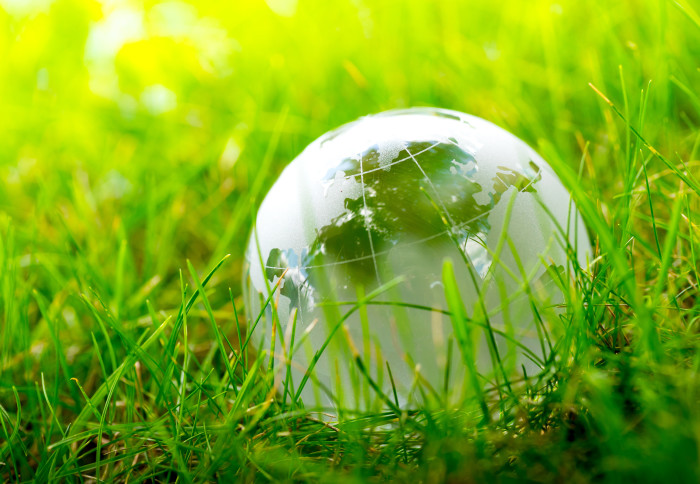
Global S&T Development Trend Analysis Platform of Resources and Environment
| 7 optimistic environmental stories from this year | |
| admin | |
| 2020-12-23 | |
| 发布年 | 2020 |
| 语种 | 英语 |
| 国家 | 英国 |
| 领域 | 资源环境 |
| 正文(英文) | 

This year, we saw large strides in combating one of the greatest issues of our time – climate change. New Imperial research and pioneering initiatives have bolstered our ability to fight back against climate change and bring about a more hopeful future. And all of this has dovetailed in the new Sustainability Strategy for the College. So how is Imperial putting us on better footing for tackling climate change? Here, find seven instances where human spirit and innovative science have come together to change the world for the better. A zero-pollution future
This effort to move towards sustainability is further underpinned by the College’s socially responsible investment policy, which is tailored towards ensuring Imperial’s investments closely align with major international accords such as the UN Principles of Responsible Investment. The entirety of Imperial’s new strategy is geared towards inspiring fundamental changes in sustainability with the hopes of building towards a more environmentally responsible future. Read more: Imperial to lead transition to zero pollution The fight against air pollution
This new initiative builds upon the group’s previous experience of developing major air pollution and emissions models for London to drive research into reducing air pollution and its effect on human health. With multidisciplinary collaborations within the College, the research group aims to tackle not just the obvious effects of air pollution, but the less well-known ones as well, such as economic costs and environmental impact. Read more: New global centre of air pollution research as Frank Kelly group joins Imperial The zero-carbon revolution
The Centre for Climate Change Innovation will support innovation across several key themes which include cleaning up the air, sustainable food, green buildings, clean transport and manufacturing a low carbon future. Read more: New centre to put London at heart of zero-carbon revolution Lighting the way
By efficiently absorbing ambient lighting in homes and other indoor settings, these materials can transform light into electricity efficiently and charge smartphones, tablets, and other smart devices. The researchers have already identified areas in which this technology can be further improved to the point where they will surpass current solar-powered technologies in the near future. The novel nature of this discovery has opened new avenues of research, with the team already working to identify similar materials to sustainably power our devices. Read more: New green materials could power smart devices using ambient light Meeting climate targets
The research team has noted that the rate at which carbon is stored is vital in how successful it is in mitigating the effects of climate change, as the faster carbon is stored, the slower global warming progresses. While they remain optimistic, the researchers also point out that for climate change to be successfully slowed down, many other factors must come into play, such as using cleaner energy and green fuel alternatives. Read more: World can likely capture and store enough carbon dioxide to meet climate targets A greener fuel source
This new membrane-based extraction system uses less than 25 percent of the energy used in current biofuel extraction, while producing over ten times the yield at 99.5 percent purity. As biofuels are critical to reducing carbon emissions and mitigating the effects of climate change, technology such as this will only become more important with time. Read more: New membrane could pave way for cheap, efficiently made biofuels Rescuing mental health
The new collaborative effort between the Institute of Global Health Innovation and the Grantham Institute – Climate Change and the Environment is dedicated to examining the direct effect of climate change on mental health and working towards finding solutions to these increasingly common challenges. The team, known as Climate Cares, will work closely with the School of Public Health, Centre for Environmental Policy and Societal Engagement team to design interventions to support the mental health of affected demographics across the UK. Read more: Project to transform understanding of effects of climate change on mental health
Want to be kept up to date on news at Imperial? Sign up for our free quick-read daily e-newsletter, Imperial Today.? |
| URL | 查看原文 |
| 来源平台 | Imperial College London |
| 文献类型 | 新闻 |
| 条目标识符 | http://119.78.100.173/C666/handle/2XK7JSWQ/309192 |
| 专题 | 资源环境科学 |
| 推荐引用方式 GB/T 7714 | admin. 7 optimistic environmental stories from this year. 2020. |
| 条目包含的文件 | 条目无相关文件。 | |||||
| 个性服务 |
| 推荐该条目 |
| 保存到收藏夹 |
| 查看访问统计 |
| 导出为Endnote文件 |
| 谷歌学术 |
| 谷歌学术中相似的文章 |
| [admin]的文章 |
| 百度学术 |
| 百度学术中相似的文章 |
| [admin]的文章 |
| 必应学术 |
| 必应学术中相似的文章 |
| [admin]的文章 |
| 相关权益政策 |
| 暂无数据 |
| 收藏/分享 |
除非特别说明,本系统中所有内容都受版权保护,并保留所有权利。
修改评论